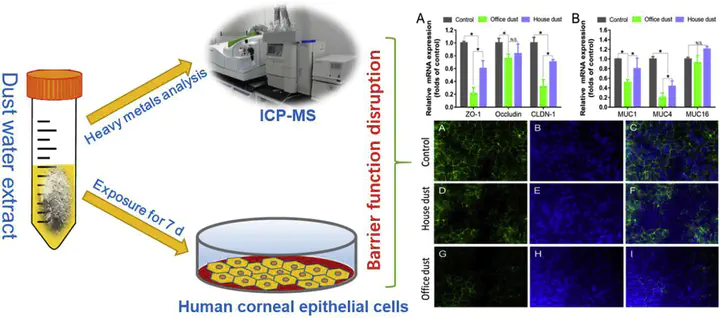Water extract of indoor dust induces tight junction disruption in normal human corneal epithelial cells

Abstract
In corneal epithelium, tight junctions play a vital role in its barrier function. Human cornea is highly susceptible to damage by dust. Continued daily exposure to dust has been associated with increased risks of corneal injury. Studies demonstrated that water extract of dust induced cytotoxicity in human corneal epithelial cells (HCECs); however, its effects on corneal epithelial barrier function are unknown. In this study, we determined the concentrations of heavy metals in water extracts of dust, with office dust having higher concentrations of heavy metals than housedust, and Cu and Zn being highest among metals for both dust. Changes in barrier function and its associated mechanism after exposing HCECs to water extracts of dust at 48 μg/100 μ L for 7 d were evaluated. Water extracts of both dust caused decrease of TEER value (39–73%), down-regulation of gene expression related to tight junction and mucin (0.2–0.8 fold), and loss of ZO-1 immunoreactivity from cellular borders, with office dust having greater potential than housedust to disrupt corneal epithelial barrier function. Our data implied the importance to reduce heavy metals in dust to reduce their adverse impacts on human eyes.